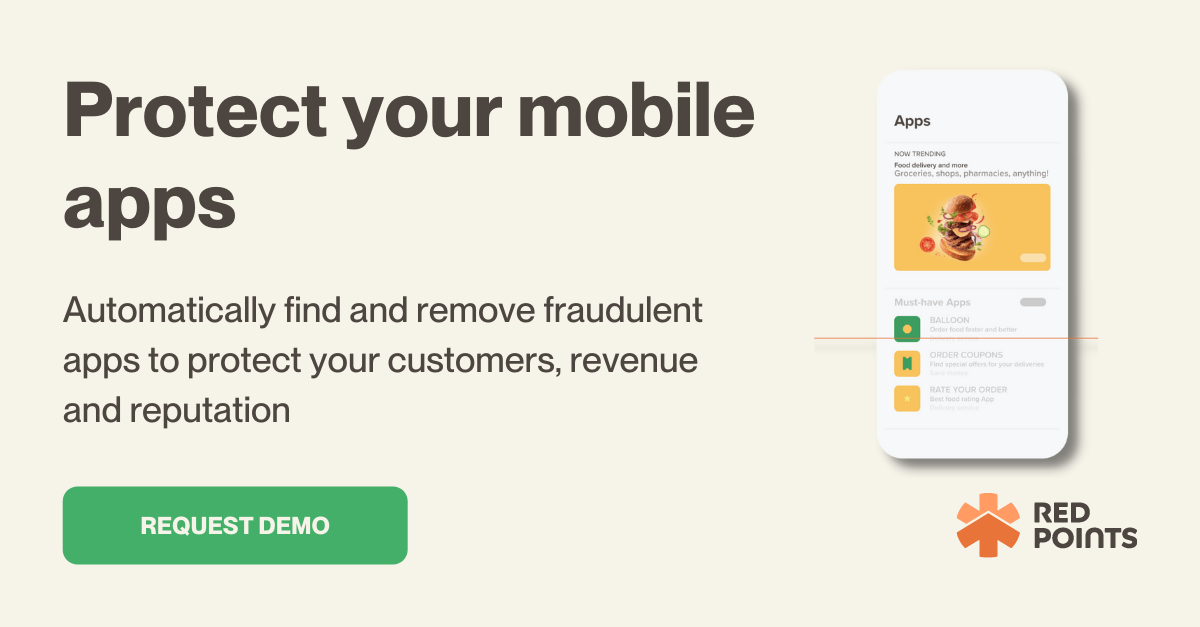The term sideloading refers to the practice of installing an app on a device from a source other than the device’s official app store. For example, when an Android phone user may download and install a .apk file from a third-party website, it is a sideloading practice.
In a business setting, sideloading practices can happen for various reasons, some are legal and harmless, but some can be detrimental.
A common and reasonable use case of sideloading is when your business has an internal app that you don’t want to host on the Play Store or App Store. If the app is strictly for internal use and, for example, involves confidential client data, it makes sense that you wouldn’t want to have this app on a consumer-oriented app store for the general public to have access to.
Oftentimes, however, users perform sideloading for malicious or even illegal means, like using modified/hacked apps with additional features (i.e., cheating on game apps) or illegally installing otherwise paid apps for free. If you are a business selling mobile apps or games and have your apps pirated and available for sideloading, this can significantly hurt your bottom line.
It is important to note that sideloading apps can expose users and your business to significant security risks to both the device and the user’s personal information. In this post, we’ll explore these various risks.
What are sideloaded apps?
Typically, each device or OS (operating system) only has one approved or authorized app distribution channel:
- Google Play Store (for Android devices)
- Apple App Store (for iOS devices)
- Amazon Appstore (for Android devices)
- Samsung Galaxy Store (for Samsung devices)
- Huawei AppGallery (for Huawei devices)
- Microsoft Store (for Windows devices)
- BlackBerry World (for BlackBerry devices)
Typically, sideloaded apps use the same file formats as the approved app stores:
- .APK (Android Application Package) files for Android devices
- .IPA (iOS App Store Package) files for iOS devices
- .XAP (Windows Phone App Package) files for Windows devices
- .BAR (BlackBerry Application Resource) files for BlackBerry devices
- .DMG (Disk Image) files for macOS devices
However, in rarer cases, sideloaded apps may come in different file types, such as .xapk, .obb, or .apks for Android devices.
Any applications that are downloaded and/or installed on a device from a source other than the official app store: a third-party app store, file-sharing platform, peer-to-peer (i.e., torrent) sites, or any websites can be considered sideloaded apps.
Not all of these third-party sources are considered illegal. For example, Amazon Appstore is a legitimate and authorized third-party app store (that is relatively secure) for Android devices. Some developers may also choose to distribute their apps through their website or even via Dropbox or Google Drive for one reason or another. For example, to avoid transaction fees charged by the official app store or to avoid censorship.
Different device and OS manufacturers have varying stances regarding sideloaded apps, but when it comes to discussing third-party apps, Apple’s policies have been a contentious issue in recent years, one notable recent event being the legal battle between Apple and Epic Games, the developer of the popular Fortnite game.
In 2020, Epic Games filed a lawsuit against Apple for anti-competitive behavior. Earlier, Apple removed Fortnite from its Apple App Store after Epic Games launched a direct payment store in Fortnite, allowing players to purchase in-game currency cheaper than what was offered on the App Store. Epic Games’ lawsuit also alleges that Apple’s tight restrictions on third-party app stores and 30% commission on all app transactions are anti-competitive.
There was also a controversy surrounding Apple’s decision to remove Parler—a social media app similar to Twitter that is popular among right-wing and conservative users—from the App Store, with Apple claiming that the app had a role in the January 6th Capitol riots, among other allegations.
It’s also worth noting that recent developments in EU laws have forced Apple to allow third-party app stores on their iPhones and iPads in the future.
This has reignited the desire of iOS app developers to make their apps available for sideloading, again, to avoid paying Apple commissions, among other reasons. Despite this, however, the lawsuits and controversies surrounding Apple and the App Store continue to be a point of dispute for many users and developers.
These events have reignited the desire of some app developers to make their apps available for sideloading, among other reasons.
How can sideloaded apps impact your business?
As discussed, sideloading apps can put your device and sensitive data exposed to various security issues.
Due to these issues, sideloading apps can have a significant impact on your business, particularly for companies that publish mobile apps.
Here are some ways how sideloaded apps can negatively impact your business:
- Piracy leading to reputational damage: When users download and install pirated versions of your app via sideloading, they may face various issues, from poor performance to malware infection to data breaches. These negative experiences may associate your brand with poor quality, leading to reduced downloads, negative reviews, and damage to reputations.
- Lost revenue: Pirated apps available via sideloading can lead to lost revenue, especially for businesses that rely on revenue generated from the apps. When users download and install your app from unofficial sources, the business misses out on potential revenue since these users are not paying for the official app. Apps that use the in-app purchase models can also be affected.
- Violation of Intellectual Property (IP) rights: Pirated apps naturally violate IP rights by infringing copyrighted materials. Not only can this damage your brand and reputation, in a worst-case scenario, but this can also lead to legal issues for your business.
- Data breaches and other security issues: Users may sideload a modified version of your app that contains malware or security vulnerabilities. This pirated app may potentially compromise sensitive customer data (i.e., credit card numbers), which can lead to data breaches and legal liabilities for the business.

What are the risks for your customers sideloading apps?
While sideloading apps may offer some benefits for both the users and app developers, the practice comes with inherent risks to the downloader which can have an indirect impact on your business, including but not limited to the following:
Malware infection: one of the biggest risks of sideloaded apps is the potential for malware infection. Unfortunately, many malicious actors distribute apps that contain malware (viruses, spyware, trojans, etc.) via side loading. Malware-infected apps can track your activity, steal personal information, and even permanently damage your devices.
Security vulnerabilities: besides malware infection, sideloading apps can introduce other forms of security vulnerabilities into your device. For example, users may give the sideloaded app access to the device’s location or contact, and the malicious actors behind the app can use this permission to further exploit vulnerabilities.
Lack of updates: apps downloaded from the official app store will receive regular updates with bug fixes and security patches (to fix known vulnerabilities.) Sideloaded apps, on the other hand, may not receive updates, so any vulnerabilities and issues will not be fixed. This can expose the device and network to potential cyberattacks.
Compatibility issues: sideloading apps that are not designed for your device or OS can cause compatibility issues that may cause malfunction, or worse, damage your device.
How Red Points can protect and monitor your apps
Red Points is a company specializing in Anti Piracy, offering a range of services to help businesses protect their IP rights in the digital world.
One of the key solutions offered by Red Points is Mobile Apps Protection software, which can help monitor and protect your mobile apps in the following ways:
Detection of sideloaded apps: Red Points’ Mobile App Protection uses state-of-the-art technology to scan the internet in order to detect pirated versions of your mobile apps on third-party app stores, links on social media, websites, file-sharing platforms, and other potential sideloading resources. Red Points will also monitor official app stores (Apple App Store, Google Play Store, etc.) for infringing apps.
Review and validation of infringements: When our advanced detection is able to identify a potential infringement, the link or listing is immediately added to a list of detections on our online platform. Once you access our platform, your role as the user is to determine which detected incidents are, in fact, infringements and should be taken down. While this process is the only manual step in our process in which our users have to take action themselves, we give users the capability of implementing “smart rules,” which can automate the validation of detected infringements. The goal of these “smart rules” is to ensure all guaranteed infringements that could harm your business or its customers are taken down ASAP.
Automated takedown of pirated apps: Once you’ve validated a potential infringement that we’ve detected, we initiate the takedown process immediately on your behalf. We also follow through on the infringement to ensure that it is taken down and, if possible, the perpetrator is reprimanded. After all these, we will send you a full recap report about the case.
Establishing protection against future piracy: Red Points’ Mobile App Protection software will protect your business against future piracy attempts via features such as anti-tampering measures, code obfuscation, and app hardening, among others, to make it more difficult for malicious parties to tamper with your app.
Regular reporting: Red Points will provide regular reporting on the status of the mobile app’s protection, as well as the takedown processes of pirated apps.
Taking advantage of Red Points’ mobile app protection solution can help protect your business’s intellectual properties from theft, misuse, and piracy. Protecting your mobile apps can help your business safeguard your reputation, sensitive user data, and revenue.
This way, you don’t need to worry about your security and digital reputation, and instead can turn your focus on developing and promoting your business.
What’s next?
Sideloading apps can pose significant risks to both the app users and businesses publishing their mobile apps. Modified and/or pirated sideloading apps can introduce security risks such as malware infection, data breaches, and other risks. Not to mention, these apps naturally infringe on your business’s intellectual property rights.
The cost of not protecting your mobile apps can be high, and you are essentially leaving your business vulnerable to piracy and other forms of IP infringement. In the long run, this may result in reputational damages, loss of revenue, and even legal consequences.
This is why it’s critical for businesses to take proactive steps to protect their apps and other intellectual properties with Mobile App Protection software like Red Points’.
For those that are curious to learn just how much an automated mobile app protection software could benefit their business, speak to one of our Anti Piracy experts to find out!






